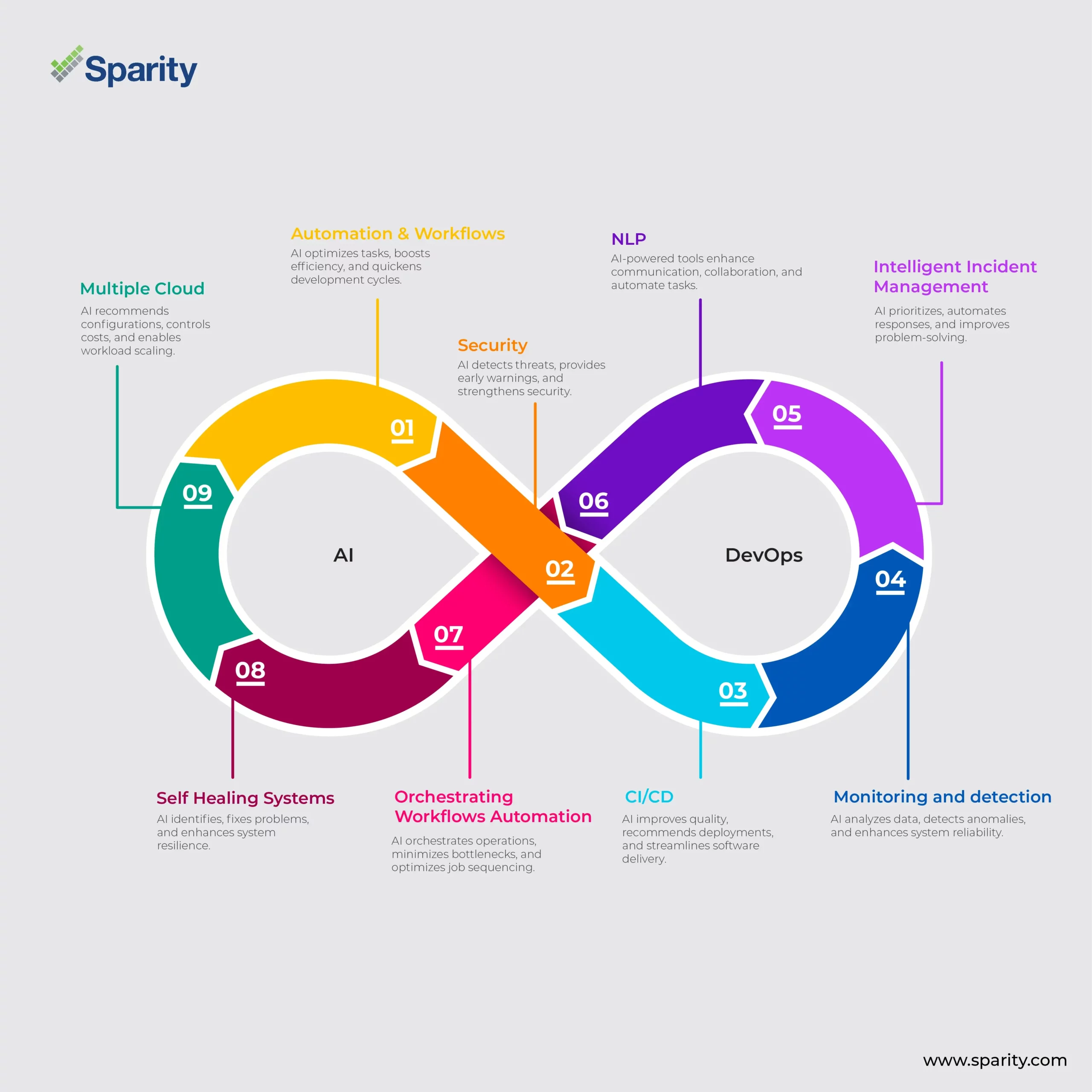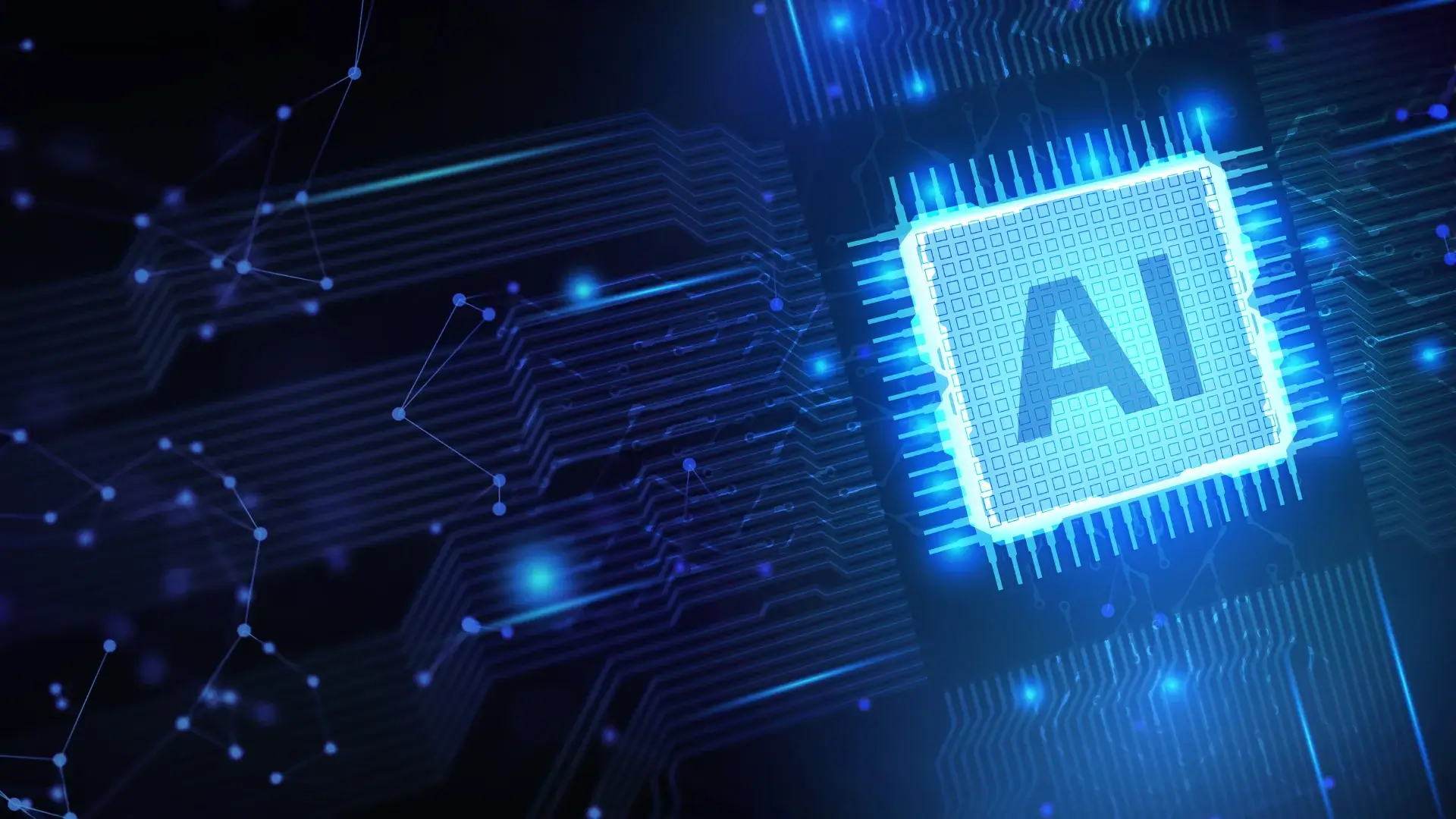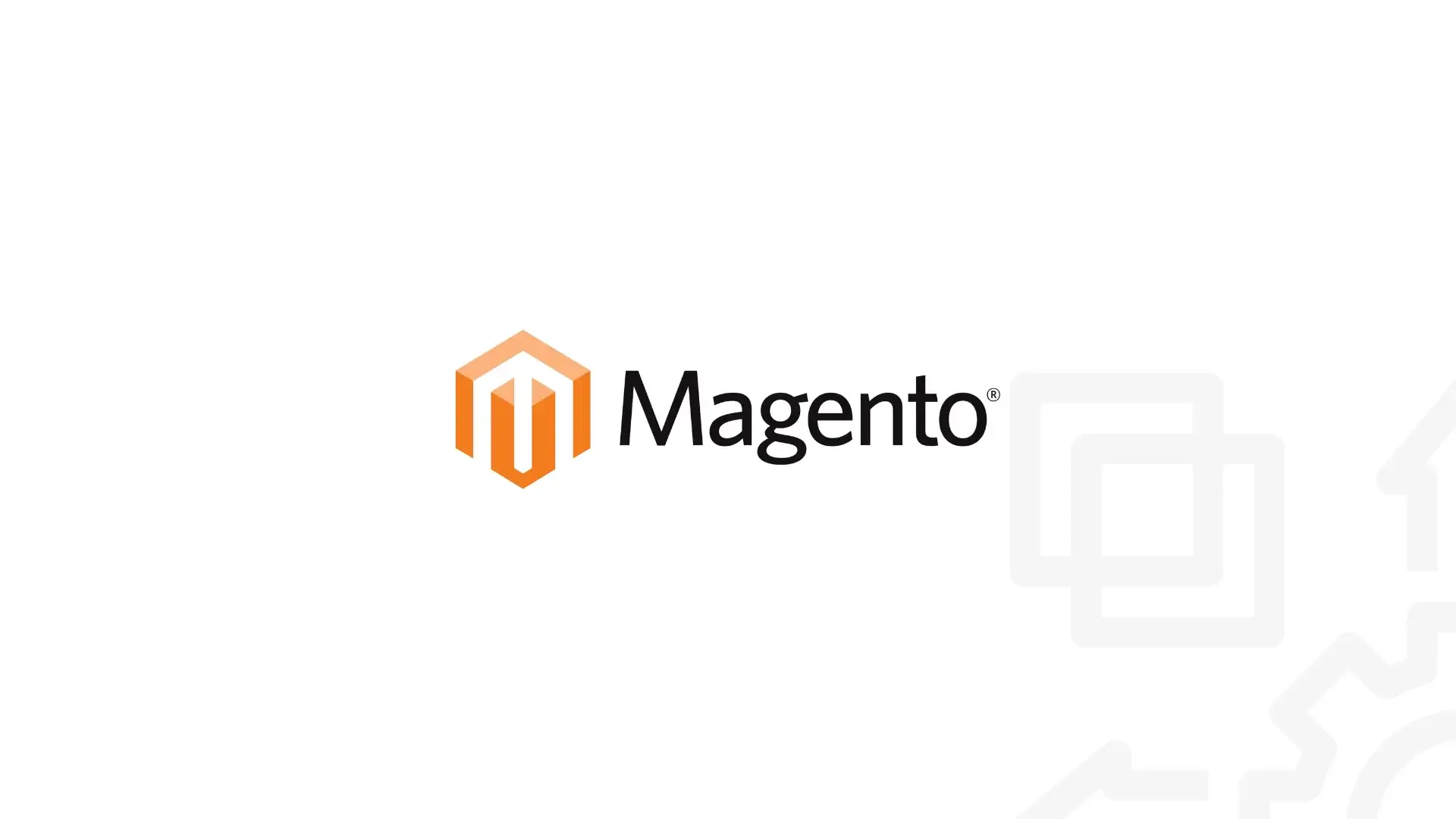Contents
Introduction
The combination of AI and DevOps is changing how software development and operations work together. AI, which stimulates human intelligence in machines, focuses on predictive analysis and automation. On the other hand, DevOps is a methodology that merges development and operations to achieve faster and more dependable software delivery.
Discover as we are delving into how AI’s predictive capabilities enhance efficiency, reduce errors, and strengthen security, and improve tasks like code analysis, testing, and deployment.
Role of AI in DevOps
Automation
AI in DevOps transforms automation by optimizing operations and minimizing manual involvement with machine learning algorithms. By automating routine tasks like testing, deployment, and provisioning, it frees up teams’ crucial time so they can concentrate on important strategic projects. AI detects patterns and trends in past data by intelligently analyzing it and then recommends ways to increase process efficiency. This increases total output while simultaneously quickening development cycles. DevOps teams may increase software development processes’ scalability, quality, and delivery speed by using AI-driven automation.
Security
AI in DevOps acts as a proactive shield, constantly monitoring and analyzing vast datasets in real-time. It detects anomalies, potential threats, and suspicious activities across systems and networks. By employing machine learning algorithms, AI can recognize patterns indicative of security breaches, providing early warnings for swift action. Furthermore, AI enhances threat intelligence by correlating data from various sources, enabling security teams to respond effectively to emerging threats. By automating threat detection and response, AI significantly reduces the window of vulnerability and strengthens the overall security posture of DevOps environments.
CI/CD
AI is a key component in continuous integration and continuous delivery (CI/CD), helping to improve software quality and streamline procedures. Code testing is automated by AI-powered technologies, which find defects and vulnerabilities early in the development cycle. By predicting possible defects based on past data analysis, these systems increase testing efficiency. AI in DevOps also helps with intelligent deployment methods by recommending the best times for deployments and identifying constraints in performance. AI makes deployments quicker and more dependable by minimizing mistakes and guaranteeing more seamless CI/CD pipelines using predictive analytics. By integrating AI into CI/CD processes, DevOps teams can achieve higher efficiency and faster delivery of high-quality software products.
Monitoring and detection
Integration of AI in DevOps monitoring tools continuously analyzes system performance data to detect anomalies and anticipate possible failures. These programs look for trends that indicate security threats or declining performance using machine learning algorithms. By actively monitoring crucial KPIs, AI assists teams in identifying and resolving issues before they have an impact on end users. High program dependability and reliability are ensured by automated responses and real-time alerts, which also make problem resolution simpler. DevOps teams may leverage AI-powered monitoring to gain a comprehensive picture of system activities and then make data-driven decisions for performance improvement and user experience enhancement.

Intelligent Incident Management
AI in DevOps improves intelligent incident management by prioritizing and categorizing incidents based on severity and impact. Through machine learning algorithms, AI analyzes historical incident data to identify recurring issues and suggest optimal solutions. It automates incident response workflows, enabling faster resolution times and minimizing downtime. AI enhances root cause analysis by correlating events across systems by facilitating more effective problem-solving. By streamlining incident management processes, AI empowers DevOps teams to maintain high system availability and reliability, ensuring seamless user experiences.
NLP (Natural Language Processing)
AI-powered NLP tools enable communication and collaboration within DevOps teams. By understanding and processing natural language commands, these tools facilitate conversational interfaces for querying systems, generating reports, and automating routine tasks. NLP also enhances knowledge sharing through automated documentation and knowledge base creation. Chatbots provide instant responses to common queries, improving efficiency and reducing response times. By integrating NLP into DevOps workflows, teams can enhance collaboration, streamline communication, and improve overall productivity.
Orchestrating Workflows Automation
Through dynamic resource allocation, dependency management, and situation adaptation, AI in DevOps orchestrates complex operations in DevOps contexts. In order to minimize bottlenecks, enhance resource efficiency, and optimize job sequencing, machine learning algorithms evaluate data. This guarantees dependable and effective process execution throughout the software development lifecycle. AI-driven workflow orchestration also makes it possible for processes to be adaptive and self-learning so they can get better over time. AI in DevOps improves operational efficiency, shortens time to market, and guarantees consistent delivery of high-quality software products by automating repetitive operations and streamlining workflow execution.
Self Healing Systems
AI in DevOps endows settings with self-healing capabilities, allowing systems to independently identify, diagnose, and fix problems. AI detects aberrant behaviors or performance degradation through real-time monitoring and analysis, which sets off automatic remedial steps. Through the incorporation of insights from past incidents. Self-learning algorithms constantly enhance system resilience. Artificial intelligence (AI)-driven self-healing systems reduce downtime and guarantee application uptime by proactively resolving problems before they worsen. In DevOps contexts, this self-sufficient problem-solving capacity boosts operational efficiency, decreases manual intervention, and increases system stability.
Multi Cloud
AI in DevOps for multi-cloud setups effectively makes it easier by distributing workloads, allocating resources, and controlling costs. To recommend the best resource configurations, machine learning algorithms examine consumption trends and performance indicators from a variety of cloud platforms. Teams may choose the finest cloud services for certain workloads with the help of AI-driven decision-making, which boosts efficiency and lowers costs. AI also ensures smooth operations by automating workload scaling and migration between cloud environments. AI enables DevOps teams to make well-informed decisions, maximize resource utilization, and maintain consistent performance across various cloud infrastructures by offering insights on cloud usage and expenses.
Conclusion
AI in DevOps isn’t just about making processes more efficient; it’s about transforming them entirely. AI’s predictive capabilities bring a new level of efficiency and security to DevOps, ensuring that every line of code is reliable. Embracing this collaboration isn’t just a decision; it’s a step into a future where software development isn’t just agile—it’s visionary. As we move away from old ways of thinking, we’re ushering in an era where AI and DevOps work together efficiently, shaping the digital world with unmatched precision and creativity.
Why Sparity
Sparity’s expertise in integrating AI in DevOps and adopting DevOps frameworks drives significant growth for your organization. By leveraging AI for efficient automation and embracing DevOps practices, Sparity empowers your team to deliver higher-quality software, faster. Partner with us for this transformative approach ensures enhanced efficiency, security, and innovation, fueling organizational growth.




